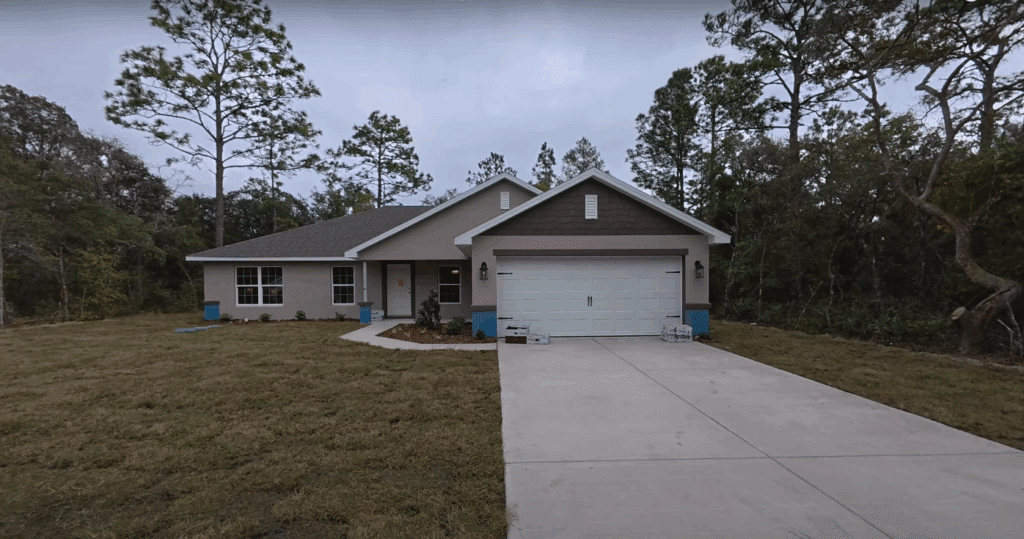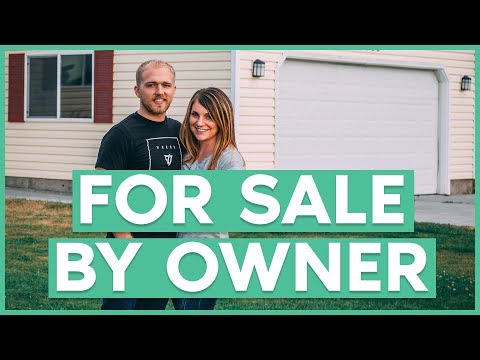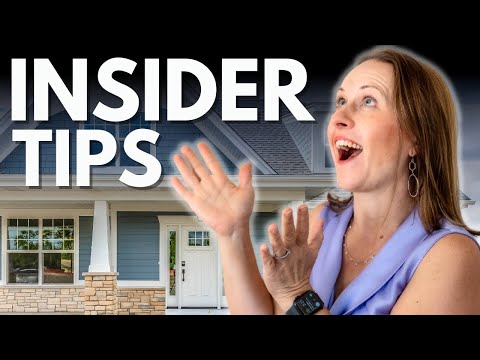Selling your home in Fort Walton Beach fast by yourself without a real estate agent doesn’t have to be confusing or stressful. If you’re feeling overwhelmed, let We Buy Houses Cash Florida home buyers take some of the burden off of your shoulders.
With just five minutes of your time, we can give you a no-pressure fair cash offer on your Ft. Walton Beach rental house. It’s really that simple. Contact us for a free cash offer today!
Selling your house can feel overwhelming, especially without a realtor. Did you know homes sold this way often save thousands on agent fees? This guide will walk you through “how to sell your house fast without a realtor” step by step.
Don’t miss these essential tips!
Key Takeaway Points To Consider
- Research your home’s market value using tools like Zillow or Redfin. Compare recent sales in your area to set a fair price and attract buyers. Pricing too high or low can cost you time or money.
- Prepare your home by decluttering, making repairs, and staging it for buyers. Small upgrades, like fixing leaky faucets or adding fresh paint, can increase its appeal and value quickly.
- Use flat-fee MLS services for $500–$1,500 to list your house where agents look for properties. Advertise on social media with professional photos to grab attention fast.
- Work with a real estate attorney (required in Connecticut) to handle legal documents and review contracts safely during the sale process. Their help prevents costly mistakes later.
- Selling for cash speeds up the process but may result in lower offers—usually 60–80% of after-repair value—and service fees from companies like iBuyers range between 5–13%.
Step 1: Determine Your Home’s Market Value
Knowing your home’s market value is key to selling fast. A little research can help you price it just right!
Research recent sales in your area
Check recent home sales nearby. Look at houses similar to yours in size, age, and style. For example, in Hartford, homes are valued around $364,000 on average. In Bridgeport, the median jumps to $631,090.
These numbers can guide you in pricing your home fairly.
Use tools like realtor.com or fsbo.com for quick research. Focus on final sale prices instead of just listing prices—they tell the real story about market value trends. This step helps you avoid overpricing and scaring off buyers while staying competitive with other listings.
Use online home valuation tools
Online home valuation tools give quick estimates of your property’s worth. These tools analyze local sales, housing prices, and market trends to deliver results. For example, Zillow’s Zestimate calculates values by comparing nearby homes.
Tools like Redfin also use data from multiple listing services (MLS).
You can explore these free platforms without stress or commitment. They save time by giving you a rough fair-market value in minutes. While not perfect, they help set realistic pricing goals for selling fast without a real estate agent or broker involved.
Consider a comparative market analysis (CMA)
A comparative market analysis (CMA) helps you find your home’s fair market value. It compares your house to similar ones recently sold in your area. Focus on homes nearby with the same size, number of bedrooms, and features.
If doing it yourself feels tricky, consider hiring a professional. A Broker Price Opinion (BPO) or pre-listing appraisal costs between $92 and $295. Investing in a CMA ensures you price competitively without leaving money on the table or scaring off buyers.
Step 2: Set a Competitive Listing Price
Pricing your home right is like setting bait for buyers—it needs to be just right, not too high or too low. A smart price can spark interest and bring offers rolling in faster than you’d expect!

Factors influencing your home’s price
Many factors affect your home’s value. Knowing them can help you price it right and sell faster.
- Location Matters
Homes in desirable areas tend to sell for more. Nearby schools, parks, stores, and low crime rates increase demand. - Market Conditions
A hot real estate market raises prices. In a buyer’s market, expect lower offers as supply exceeds demand. - Size and Layout
Square footage impacts pricing greatly. Open layouts or extra bedrooms also attract buyers willing to pay more. - Curb Appeal
The outside of your home is the first thing buyers see. A clean yard, fresh paint, or new door adds instant value. - Condition of the Home
Repairs play a big role in price negotiation. Issues like a leaky roof or old plumbing can drop your property’s worth. - Upgrades and Improvements
Modern kitchens and bathrooms increase ROI quickly. Small upgrades like new light fixtures also add appeal. - Comparable Sales Nearby
Buyers compare your home to recently sold ones nearby (called “comps”). These sales directly impact the value buyers see. - Home Appraisals
A home appraisal sets the official value of the house based on details like age, size, and location. - Economic Factors
Interest rates influence buyer budgets directly—lower rates mean higher budgets, which boosts prices. - Seasonal Trends
Spring often brings higher sale prices since demand peaks with warmer weather and moving season starts strong!
Avoid overpricing or underpricing
Pricing your home too high can scare buyers away. Overpriced homes often sit unsold for months, losing the interest of serious shoppers. On the flip side, pricing too low might leave money on the table, something 49% of FSBO sellers regretted.
A fair price boosts your chances of a quick sale.
Research is key to hitting the right number. Study recent sales in your area and use online valuation tools to compare similar homes. You can also try a comparative market analysis (CMA) for detailed insights into local trends.
Stick with data-driven pricing; it helps avoid costly mistakes while selling fast without real estate agents or brokers.
Step 3: Prepare Your Home for Sale
First impressions stick like glue, so your home should shine from the start. A little elbow grease and smart tweaks can make buyers fall head over heels.
Declutter and depersonalize your space
Clear out excess furniture, knick-knacks, and anything that makes your home feel crowded. Buyers need to see the space, not your stuff. Box up personal items like family photos or unique collectibles.
Aim for clean and neutral so potential buyers can picture their things there.
A tidy home feels bigger and more inviting. Donate old clothes, toss expired pantry items, and deep clean each room. Fewer distractions mean buyers focus on the house itself—not clutter in the corner or toys across the floor.
Make necessary repairs and improvements
Fix broken items in your home before listing it. A garage door replacement can give you an impressive 315% return on investment, while a steel entry door offers a 236% ROI. These changes boost value quickly and make your house more appealing to buyers.
Add smaller upgrades where needed. For instance, repairing leaky faucets or replacing old light fixtures shows care for the home. Adding manufactured stone veneer provides a classy touch with a 152% ROI.
Small details like this grab attention during showings and help justify your asking price.
Stage your home for potential buyers
Strip personal items like family photos and bold décor. Buyers need to picture their lives, not yours. Clean every inch, even those corners you think no one notices. Add small touches like fresh flowers or a cozy throw on the couch.
Use neutral colors for walls if they’re too bright or dark. Rearrange furniture to make rooms feel larger. A well-staged home can sell faster and increase offers. Professional staging costs about $2,802 but could pay off big in the end.
Step 4: Market Your Property Effectively
Good photos and smart advertising can make your home the star of the show, so grab buyers’ attention and keep them hooked!
Hire a professional photographer
High-quality photos can make or break your sale. A professional photographer costs about $180 per session, but it’s worth every penny. Buyers scroll through listings fast, and sharp images grab attention.
Over 43% of buyers say online photos are essential in deciding which homes to visit.
Poor lighting or blurry shots might turn people away before they step inside. Professional photographers know how to highlight your home’s best features, from bright kitchens to spacious living rooms.
Crisp, clean photos help your property stand out on the Multiple Listing Service (MLS) and social media platforms like Facebook or Instagram.
List your home on a flat-fee MLS service
A flat-fee MLS service puts your home on the same database real estate agents use. These services charge between $500 and $1,500. This small upfront cost can save you thousands in realtor commissions.
Without it, you miss out on buyers who rely on the multiple listing service to find homes.
Pick a reliable flat-fee MLS company that matches your needs. Some only list your property without extra help; others offer add-ons like forms or advice for a higher fee. Carefully read their terms before signing up to avoid surprises later.
Once listed, double-check that all details about your home are accurate and attractive to potential buyers!
Advertise through social media and local platforms
Share your home on Facebook, Instagram, and Twitter. Post clear photos and add eye-catching captions. Highlight unique features like remodeled kitchens or big yards. Use hashtags like #ForSaleByOwner or #FSBO to increase views.
Print flyers or send postcards to neighbors for just $0.73 each. Put up yard signs, which cost between $2 and $75, to catch local attention. List your property on Zillow or Trulia for more exposure online.
Keep it simple but professional—buyers notice effort!
Step 5: Show Your Home to Potential Buyers
First impressions stick like glue, so make your home shine from the moment buyers step in. Be ready for questions—they’ll want details about features, repairs, and why your house could be their dream home.
Schedule open houses and private showings
Host open houses during weekends. This lets potential buyers view your home without pressure. Keep the schedule flexible for busy families or professionals. Clean every corner, and highlight the best features—like a spacious kitchen or new flooring.
Offer private showings for serious buyers who want extra time. Use a flat-fee MLS service to attract more attention online. The average sale in Connecticut takes 70 days, so focus on creating great first impressions fast!
Ensure your home is clean and presentable
A clean home feels inviting. Scrub the floors, wipe down counters, and dust every corner. Buyers notice dirt, even in spots you might overlook. Make bathrooms shine like new and remove mildew stains.
Empty trash bins to avoid bad smells during showings.
Vacuum carpets and polish wood surfaces to create a fresh look. Declutter shelves or cabinets—buyers often peek inside storage spaces. Clean windows let sunlight pour in, making rooms brighter and more appealing.
A neat space can make your house feel bigger instantly!
Highlight key selling points during tours
Point out recent repairs, like a new roof or updated plumbing. Buyers value homes requiring fewer fixes. Mention high ROI improvements too. Highlight kitchen upgrades, energy-efficient windows, or fresh paint jobs.
These changes increase appeal and show potential savings.
Talk about unique features that stand out. A large yard for kids to play in? A quiet home office space? Mentioning these details can spark interest fast. Give buyers reasons to picture themselves living there comfortably!
Step 6: Review and Negotiate Offers
Check each offer with a fine-tooth comb. Don’t shy away from haggling to get the best deal possible.
Understand the terms of offers received
Read every offer like a hawk. Look for details about price, contingencies, and deadlines. Some buyers might attach conditions, such as getting approved for home loans or inspections clearing specific issues.
Contingencies can delay your sale or reduce your profit.
Watch out for cash offers versus financed ones. Though cash offers are usually faster and simpler, they may be lower than others tied to mortgages. Keep an eye on the buyer’s earnest money too—it shows their seriousness.
With 53% of buyers distrusting FSBO sellers, being clear on terms helps avoid hiccups in trust later.
Negotiate price and contingencies
Study each offer carefully. Focus on price, contingencies, and buyer concessions. If a buyer asks for repairs or closing cost coverage, weigh the impact on your profit. Offering 2-3% to cover their agent fees can sweeten the deal.
Counteroffers are common in real estate transactions. Stick to facts and remain calm throughout. If inspections reveal issues, expect renegotiation requests. Legal errors affect 36% of FSBO sellers—consult a real estate attorney if unsure about contract terms.
Step 7: Handle Inspections and Appraisals
Inspections can feel like a spotlight on your home. Be ready to tackle any findings head-on, so the deal doesn’t slip through your fingers.
Coordinate with the buyer for home inspections
Set up the home inspection as soon as possible. Buyers often expect this step to happen quickly. Work with them to choose a date that fits everyone’s schedule. Most inspections take just a few hours, so coordinate times wisely.
Be ready for potential issues in the report. If repairs come up, decide if you’ll fix them or adjust the price instead. Some buyers may ask for more after seeing results, which could lead to renegotiation.
Stick to your budget and know what you’re willing to offer before agreeing.
Respond to inspection results and renegotiate if necessary
Inspection reports can reveal surprises. A leaky roof, faulty wiring, or broken appliances might pop up. Don’t panic! Use this as a chance to talk with the buyer. They may ask for repairs or a lower price.
Negotiate smartly here. Offer fixes for major issues or adjust the price slightly if needed. Some buyers accept cash credits at closing instead of repairs. Stay flexible and open to fair solutions that keep the sale on track without delay.
Ensure the appraisal meets the sale price
The appraiser’s report must align with your sale price. If the appraisal comes in too low, the buyer’s loan application could hit a roadblock. Pre-listing appraisals cost $92-$295 and help you set a fair asking price.
An accurate valuation protects against surprises later. Compare similar homes in the area or ask for a comparative market analysis (CMA). This avoids overpricing, which scares buyers away, or underpricing, which leaves money on the table.
Step 8: Close the Sale
Wrap up the paperwork, double-check the fine print, and get ready to hand over those keys—it’s time to seal the deal!
Prepare all necessary legal documents
Gather all paperwork early to avoid delays. You’ll need two forms of ID, the purchase offer, and the signed sales contract. Include copies of the home inspection and appraisal reports as well.
These documents play a big role in your real estate transaction.
Have your property deed ready, along with the closing statement. A real estate attorney can guide you through legal risks or confusing parts of these contracts. Double-check everything is correct before you finalize any agreements to keep things legally binding.
Work with a real estate attorney if needed
Preparing legal documents is only one part of the process. You may need a real estate attorney, especially for tricky situations or state laws. In Connecticut, hiring an attorney is not optional; it’s required.
They can review contracts, handle title searches, and check for legal risks in your real estate transaction.
Skipping this step could cause mistakes that cost you later. Attorneys often charge about $300 an hour, so plan ahead when budgeting closing costs. Their expertise can help protect you from surprises during the home-selling process.
Finalize the transaction and hand over the keys
A real estate attorney can guide you through the final steps. They review legal documents and confirm all terms match up. Double-check that closing costs, about 3.88% of the sale price, are covered.
For example, on a $407,391 home, this would total around $15,786.
Once paperwork is complete and payments clear, it’s time to pass over the keys. Gather extras like garage remotes or gate codes too. Handing everything over marks the end of your FSBO process and makes it official for the buyer!
How to Sell Your House for Cash Fast in Fort Walton Beach, FL
Selling for cash means speed, but it may come with a lower price. Cash buyers usually pay 60-80% of the home’s after-repair value. Research local investors or companies that buy homes for cash in Ft. Walton Beach.
iBuyers are another choice, though their service fees range between 5-13%.
Declutter your home to make it appealing even in as-is condition. Highlight key details like location benefits or upgrades. Be ready to negotiate quickly to close faster. Cutting out agents can save you about $10,918 on average, leaving more money in your pocket!
In Conclusion
Selling your house without a realtor may feel like climbing a steep hill, but it’s doable with the right steps. By setting a fair price, prepping your home, and smartly marketing it, you can attract buyers quickly.
Keep legal matters in order, stay sharp during negotiations, and close the deal confidently. Save money while taking control of the process—you’ve got this!
For more detailed insights on accelerating the sale process, consider reading our guide on how to sell your house for cash fast.
FAQs about how to sell your house fast without a realtor
1. How can I sell my house without using a real estate agent?
You can sell your house by choosing the for sale by owner (FSBO) route, pricing your home competitively, listing it on a flat fee MLS service, and marketing it through open houses or online platforms like FSBO.com.
2. What is the role of home staging when selling FSBO?
Home staging helps improve curb appeal and makes your property more attractive to buyers during showings or open houses. A well-staged home often sells faster.
3. Should I hire professionals if I’m not using a realtor?
Yes, hiring a real estate attorney and possibly a professional photographer can help with legal risks, contracts, and high-quality photos for marketing your home effectively.
4. How do I price my home correctly without an agent’s help?
Research the local real estate market to understand comparable sales in your area. You may also consider getting a home appraisal for accurate pricing.
5. Are there any hidden costs when selling FSBO?
Yes, you’ll need to account for closing costs like title insurance and potential capital gains tax after completing the transaction.
6. Is negotiating offers harder without a broker?
It might be challenging at first due to the learning curve of handling negotiations yourself, but understanding buyer needs and knowing your bottom line will make it easier over time.
Still have questions or want to know how much we can pay for your home?
Feel free to give us a call to (850) 499-0532 or fill in the secure form. Our offer is 100% free, and you have absolutely no obligation to accept it. What do you have to lose?
Additional Real Estate Tips and Resources For Selling Your Ft. Walton Beach Home
What you shouldn’t fix when selling a house
Tax questions to ask when inheriting a house
Options If Your Behind on Your House Payments
Tips for selling a house in the Winter
Do I need the original deed to sell my house
Can I Sell My House if I’m Behind on Payments
Can I Sell My House and Still Live in It Rent Free
The Benefits of Accepting a Cash Offer on Your House
How Much Does it Cost To Sell a House
Can I Sell My Parents Home With Power of Attorney
If I Sell My House For $300k How Much Do I Get
Can I Still Sell My House If It’s in Foreclosure


